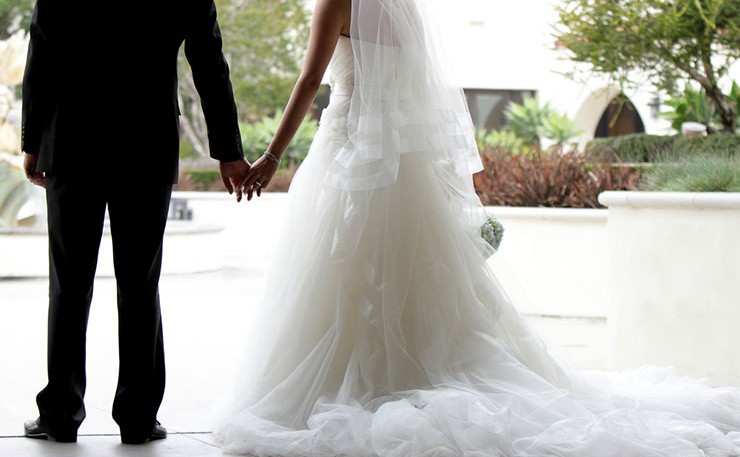Dr Monica Campo sits firmly in the ‘Yes’ camp, but that hasn’t stopped her wondering what all the fuss is about marriage in the first place.
The ‘No’ campaign and most notably ex PM Tony Abbott argue that same sex marriage will change the basis of traditional marriage, which will in turn fundamentally alter the foundations of family and of our society.
Take a closer look at those foundations of marriage and family, however, and there is not much to celebrate.
Marriage (in the West) had nothing to do with love, but was historically a state-based contract to enable men to gain control and rights over women and children, to secure property, create strategic allegiances between powerful families, and to ensure reproduction of workers for the burgeoning capitalist economy. Indeed, early laws against sodomy in Europe were not based on morality or religion, but instead on the economics of reproduction. As Sophie Monk and Joni Pit argue “compulsory heterosexuality is one of the techniques of bourgeois power deployed… to ensure the proletariat reproduces itself”.
Second wave feminists were critical of marriage arguing that it was the cornerstone of patriarchy, rendered women reliant on men for their livelihood, and, as Carol Pateman argued, a form of sexual servitude. Until fairly recently, it was legally impossible for a husband to be convicted of raping his wife because marriage was seen as contract that obliged sex to one’s spouse. In Australia, rape in marriage was legal until 1994 (in the Northern Territory, though other states criminalised it earlier).
With some notable exceptions, few contemporary feminists remain openly critical of marriage. Meagan Tyler argues that in the current climate of ‘choice feminism’, being critical of the institution of marriage is construed as an attack on women’s rights to make individual choices. The context of these choices (patriarchal capitalism) is forgotten, ignored or decried as outdated and given over to a view that marriage can be ‘reclaimed’ and somehow made feminist.
But how do contemporary women fare in marriage? Well, for a start we know that married women have poorer health, are unhappier and do more unpaid work in the home than their unmarried counterparts.
In 1975 Italian Marxist feminist Silveria Federici argued that housework and childrearing was essentially unwaged labour that the capitalist system very successfully constructed as an act of love, rather than work. Today, differences between men and women’s unpaid labour in the home has barely shifted, with women continuing to do the majority of unpaid work in the home, even when they also work full-time outside of the home.
‘Traditional’ marriage and family have also not been safe institutions for women or children, as Israeli feminist Merav Michaeli argued on QandA this week. Male violence against women and their children is most likely to be perpetrated by husbands (and other intimate partners) within the family home, at significantly high rates in Australia.
The notion of traditional marriage, espoused so vehemently by those in the ‘No camp’ then, doesn’t seem like such a great institution to uphold – it’s foundations are oppressive, sexist (and racist, see for example the history of Australia’s anti-miscegenation laws), and it continues to create unequal relations between heterosexual couples.
Let me be clear, I am not arguing against same sex marriage, and I will be voting firmly ‘Yes’ in the plebiscite. As Meagan Tyler argues: “The case for same-sex marriage, in a context where heterosexual marriage is still of significant social, political, economic, legal and religious importance, is completely understandable”. Legalising same sex marriage challenges the entrenched notion of compulsory heterosexuality and goes some way to destabilise the patriarchal roots of marriage. Moreover, I recognise that same sex marriage is about more than just marriage; it is also fundamentally about recognition and acceptance of non-hetero relationships.
I am arguing however, that the institution of marriage should be entirely abolished in favour of all kinds of equal romantic partnerships, including non-heteronormative ones, free of state and religious control. For ultimately, an institution that has been created for the benefit of white cis heterosexual men can never bring liberation to anyone else.
Donate To New Matilda
New Matilda is a small, independent media outlet. We survive through reader contributions, and never losing a lawsuit. If you got something from this article, giving something back helps us to continue speaking truth to power. Every little bit counts.






